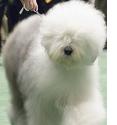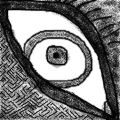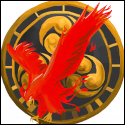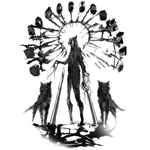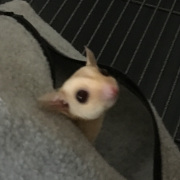|
As part of an assignment in my writing class I am supposed to interview a number of writers regarding their experiences. Rather than expending the effort necessary to leave the house, I have decided it would be better to post a thread here asking people about their own experiences. You do NOT need to be an accomplished writer to answer. The interviewed do not need to be published authors, or, really, even formally educated. The assignment only requires that the interviewed are people who do regular writing even if that means business emails or simple reports. Hell, even just running a blog is good enough, so don't hesitate to answer. If a response isn't good enough I'll either ask you to clarify or just won't use it. 1. What do you write, how often do you write, and how long have you been writing? 2. If you write professionally, do you also write as a hobby, or vice versa? And if so how do the experiences affect each other? 3. What sort of training/education have you received that influences your writing? Between experience and education, which is more important for writing? 4. What is your proudest moment as a writer? Or, alternatively, what do you hope to accomplish as a writer? 5. Who do you look up to as a role model for writing and why? If you have no role model, then why not? 6. If you can only give one piece of advice to aspiring writers, what would that be?
|
|
|
|

|
| # ? Apr 16, 2024 12:20 |
|
1. What do you write, how often do you write, and how long have you been writing? I've written two novels (finished in 2009 and 2010). At current, I write a monthly grammar/style lesson for my advertising agency. 2. If you write professionally, do you also write as a hobby, or vice versa? And if so how do the experiences affect each other? Currently the monthly lesson thing is in addition to my work duties. I saw a niche and filled it. The two novels were in my free time away from work. 3. What sort of training/education have you received that influences your writing? Between experience and education, which is more important for writing? I double majored in magazine journalism and history, both of which required a great deal of writing. I wrote a thesis on Tang Dynasty literature for my history degree. That...didn't do a drat thing for my writing career, really. Don't get me wrong, I enjoyed the experience, but it only resulted in a diploma. Experience, experience, experience. Helped me discover my own voice outside of the confines of writing to what a professor would like. 4. What is your proudest moment as a writer? Or, alternatively, what do you hope to accomplish as a writer? Finishing and self-publishing my first book. It's not really all that good, and I barely earned three figures from it, but putting my name to a finished product was important to me. 5. Who do you look up to as a role model for writing and why? If you have no role model, then why not? Charles Ives. I loathe the tortured-artist motif, and Ives was the exact opposite of it. (Though he's a composer.) 6. If you can only give one piece of advice to aspiring writers, what would that be? Tip your bartender.
|
|
|
|
1. What do you write, how often do you write, and how long have you been writing? I've written several novels, technical manuals, marketing blogs/emails/advertisements, various awful blogs via freelancing, standardized tests, accreditation procedures and activities, grants (facilities, equipment, general funding, etc.), and curriculum for several content areas. I write every day. I started writing on my own when I was 8 years old, when I finished my first novella. (It's unpublished and terrible; it's pretty much a Star Wars fan fic but I also threw in some anime and Super Mario). 2. If you write professionally, do you also write as a hobby, or vice versa? And if so how do the experiences affect each other? Yes, I write nonstop, both professionally and as a hobby. Concise, clear, and entertaining communication is a necessary component--the most necessary component--of any written work. One way that my professional work, in recent memory, has altered my hobby writing is the level of complexity in the content. I'm desperately trying to fix the national testing infrastructure in the FSM, among other duties re: accreditation and grant writing, and that means everything is watered down and ESL-focused. It's all about explaining otherwise complex ideas using language that a native English-speaking 3rd grader can understand. Conversely, my hobby writing has become increasingly complex in both its themes and its execution. For example, my most recent book included a palindromic number of palindromes. 3. What sort of training/education have you received that influences your writing? Between experience and education, which is more important for writing? Like any artistic medium, experience matters more than any education you have. A staggering number of PhDs are grossly incompetent. I've become increasingly resentful of NGOs and nonprofits as I've witnessed the damage they've caused here, the great bulk of which has been by people with advanced degrees. Personal experiences that influence my writing the most are probably the amount of time I've spent living abroad--not as a student or whatever, but as a member of the community. It's not hard to be creative when the nonfiction stories of your life include hanging out with a local king, cooking a dog in a traditional oven for a 1st birthday party, singing a rap for every teacher in the state, and uncovering transnational scandals. The best way to competently talk about a subject is to thoroughly and completely live it. 4. What is your proudest moment as a writer? Or, alternatively, what do you hope to accomplish as a writer? I'm happy with the accreditation work, testing work, and curriculum work I've done--but I'm still proudest of some of the ridiculous easter eggs I snuck in through various blogs, web sites, and email campaigns with my old technology company. 5. Who do you look up to as a role model for writing and why? If you have no role model, then why not? Jonathan Lethem is a living equivalent of Mark Twain, as far as sheer brilliance is concerned. The vast majority of his works are in different genres, and he's yet to write something that isn't immediately and profoundly moving. He can write a romance comedy about nothing, complete with physics jokes; then a story about the radicalist movement; a series of essays on influence and culture; a ridiculous noir with a kangaroo for some reason. The man can do no wrong. 6. If you can only give one piece of advice to aspiring writers, what would that be? Same thing you'd hear with any other field: write every single day, and get as much criticism as possible; take nothing personally. Like a hungry and horny dog on an island, don't be afraid to eat your babies, and don't be afraid if others eat them, too. You can always make more, and the ones that survive will make you proud.
|
|
|
|
1. What do you write, how often do you write, and how long have you been writing? Fanfiction and original fiction, always either fantasy or science fiction, at least biweekly, and for over ten years (or since the age of 15 if that's more helpful) 2. If you write professionally, do you also write as a hobby, or vice versa? And if so how do the experiences affect each other? My last answer hinted at this, but yes, I began writing as a hobby/passion, and have had (rather limited) success writing professionally. Frankly, playing in other people's playgrounds is the only thing that prompted me to make some of my own. 3. What sort of training/education have you received that influences your writing? Between experience and education, which is more important for writing? I have a BA in English, creative writing, but while my studies helped me hone and perfect my writing, if I hadn't had a passion for it for years, I would never have wanted to spend time studying it. 4. What is your proudest moment as a writer? Or, alternatively, what do you hope to accomplish as a writer? Hard question... recently I got my first email from a publisher saying "Yes, we want to publish your work." But compared to fanfiction reviews from authors I loved... it's only slightly more gratifying, I guess, and that only because I get money for the first thing. 5. Who do you look up to as a role model for writing and why? If you have no role model, then why not? Brandon Sanderson, hands down. First for his skill and facility in fantasy, second for his humility and accessibility, and lastly for his determination and drive. 6. If you can only give one piece of advice to aspiring writers, what would that be? If you want to write, read. May sound trite, but if so it's only because it's always been true. Also, ask yourself: how much do you want this? Are you willing to neglect the games you usually play, the forums you haunt, to spend whatever time necessary to succeed in the field? If you aren't, no biggie, it makes a great hobby, but don't plan your life around a hobby.
|
|
|
|
1. What do you write, how often do you write, and how long have you been writing? I write several hours a day, five days a week. I handle communications and P.R for a startup company. Internal and external communications, interviews, pitches and speeches. I plan communications strategy for the company. I am the person who advises you on what to say and how to say it. I sit with engineers, programmers and business people and learn everything I can, so I can correctly communicate that to others. I help guide the company culture. I coach employees. And there is crisis management. 2. If you write professionally, do you also write as a hobby, or vice versa? And if so how do the experiences affect each other? Gaming is a major part of my life. I like to create worlds and characters and then imagine the interactions. When busy, it is difficult to play because I use the same mental "muscles". My hobby has enhanced my creativity. 3. What sort of training/education have you received that influences your writing? Between experience and education, which is more important for writing? I read a lot. I value daydreaming and imaginative exercise. Higher education can help you build confidence. But optional. 4. What is your proudest moment as a writer? Or, alternatively, what do you hope to accomplish as a writer? When someone appreciates your work enough to reward you for it. I recently created a pitch-deck for someone overnight and they were appreciative. That meant a lot to me, because business people do not waste time with undeserved praise. 5. Who do you look up to as a role model for writing and why? If you have no role model, then why not? I admire naive writers, people who write for personal pleasure. 6. If you can only give one piece of advice to aspiring writers, what would that be? You must learn is to edit your work based on the guidance of a critic or client. Rewrite again and again. Even if they are wrong and you are right. xutech fucked around with this message at 14:45 on Nov 26, 2015 |
|
|
|
1. What do you write, how often do you write, and how long have you been writing? At work, I write various kinds of reports. At home, I write blog entries and similar stuff related to my hobbies. I don't really think of myself as a writer, but it is a large part of what I do at work, now that you made me think about it. 2. If you write professionally, do you also write as a hobby, or vice versa? And if so how do the experiences affect each other? I think that I write more than my colleagues, especially my older ones, outside work. No matter if it's forum entries, blogs or whatever, it does mean that I get more practice. I do believe that it made me better at writing than a lot of people around me. 3. What sort of training/education have you received that influences your writing? Between experience and education, which is more important for writing? Basically every class in my main subject (Anthropology) used written essays instead of tests, all throughout my Bachelor and Masters studies. That meant writing a lot of text, sometimes as much as 100 pages/semester. We also read a lot of different kinds of texts, from very fluent narratives to French sociologists who can be tough to read. But again, posting on forums since I was a young teenager has also given me a lot of experience. I think the combination of these have helped me a lot, especially for my English, as I'm a non-native speaker but mainly stick to English websites. 4. What is your proudest moment as a writer? Or, alternatively, what do you hope to accomplish as a writer? When I wrote my first government report and it got good "reviews" from other agencies, that was fun. Or maybe when I got asked by a hobby magazine to write an article about a subject I enjoy. That was fun even though it didn't end up as good as I hoped it would. 5. Who do you look up to as a role model for writing and why? If you have no role model, then why not? We have an agency that works for transparency in official texts. Their aim is to change how officials write texts, so that they can be read by everyone. It sounds geeky as hell, but I think that it's a very important job, and I constantly question my own texts and try to make them easier to follow and understand. Lose the ego, and write with your reader's interest in focus. 6. If you can only give one piece of advice to aspiring writers, what would that be? Don't expect that you are right. Other colleagues are much worse at writing than me, but that doesn't mean that all my texts are perfect and don't need editing. Welcome feedback and realize that one day you will be the reactionary dinosaur in the room, crowing about how kids these days don't write properly. If you are a fiction writer this might be less important, I don't know. lilljonas fucked around with this message at 13:51 on Nov 27, 2015 |
|
|
|
1. What do you write, how often do you write, and how long have you been writing? Formally, I'm a reporter who focuses on game and geek news content. I've been doing journalism freelance for a few years now. For fun, I write contemporary fantasy novels and stories. I have my first full novel hitting Amazon on the 15th, but there's no way of knowing if it'll do well, so it's not a job quite yet. I've been writing fiction for fun practically since I could form words. 2. If you write professionally, do you also write as a hobby, or vice versa? And if so how do the experiences affect each other? See above. But, yes. Even for most professionals, writing isn't really a job that pays much, so it has to be a labor of love if you ever want to reach above that. 3. What sort of training/education have you received that influences your writing? Between experience and education, which is more important for writing? A lot of my experience came from simply sitting down to do it, but obviously the journalism stuff required a bit more formality. I went to the University of Missouri for a few semesters (not as a writer, though I took several classes for it) before moving to L.A. I've done more local college stuff out here, and acted as Editor-in-Chief for my campus newspaper briefly. The fiction stuff I've never had any training on. It's a common refrain from writers that to write well you have to keep writing a lot, and you have to read a lot. My education for novels was from reading a shitload of other novels growing up. 4. What is your proudest moment as a writer? Or, alternatively, what do you hope to accomplish as a writer? The first time I had my stories/photos approved for CNN usage. Putting that on a resume is really cool, and I look forward to chatting with the same editor every year for Comic-Con. Still waiting on a cool moment like that for fictional work, but I'm not giving up hope.  5. Who do you look up to as a role model for writing and why? If you have no role model, then why not? Neil Gaiman is, by far, my favorite and a huge inspiration. Some people see him as being kind of same-y and pop culture-oriented, but I think it's fine. He's extremely knowledgeable about the work of writing, and honest in what he's trying to accomplish with his own books. I highly recommend any of the BBC Radio interviews he's done over the years. 6. If you can only give one piece of advice to aspiring writers, what would that be? Just write and only trust your own judgement. Everyone has opinions about how to write, what makes a great book, the market and whatnot, but it's not so simple. If it were, everyone would be following the same formula, and your books wouldn't be what you wanted them to be. Obviously feedback and some industry knowledge are important, but ultimately, you should be writing the stories you want to tell first and let that rest come once you've figured out the words you want on the page.
|
|
|
|
NineBreaker posted:6. If you can only give one piece of advice to aspiring writers, what would that be? Passing by to say I absolutely loved this. I wanted to see if it came somewhere, but to no avail. "Don't be afraid to eat your babies" is now on my google search history 
|
|
|
|
1. What do you write, how often do you write, and how long have you been writing? Incredibly niche, novella-length sci-horror (and one slightly satirical sci-fi-type thing). Currently working on first novel-length piece and have taken my first steps into the world of editing. 2. If you write professionally, do you also write as a hobby, or vice versa? And if so how do the experiences affect each other? I still view my writing as a hobby, it's just one that happens to bring in some extra pocket money. Being good at writing and able to express myself clearly is definitely an advantage in my day job though. 3. What sort of training/education have you received that influences your writing? Between experience and education, which is more important for writing? I've got a lot of experience in scientific and semi-technical writing, but if anything that's been more of a hindrance than a help. I think experience is crucial for writing, because it's the only way you'll develop your own style and learn to be aware of the kind of things you need to be paying attention to when writing a story. Education (as in specific, writers workshop-style education) can probably help you to avoid a few pitfalls, but there are some things you can only learn the hard way. 4. What is your proudest moment as a writer? Or, alternatively, what do you hope to accomplish as a writer? Lots of little moments really: when someone told me they'd just re-read one of my books for the 4th time within a few months of it coming out, when another writer told me they were jealous of some passages from my last book, that kind of thing. I generally try to avoid getting too prideful though; conceit leads to lovely writing. All I hope to accomplish is to write the best books I can. It is gratifying when other people 'get' it, though. 5. Who do you look up to as a role model for writing and why? If you have no role model, then why not? There are writers whose work I like (or envy!) but I wouldn't call them role models, because most (certainly not all) authors seem to be fairly obnoxious irl. I suppose there's a certain amount of arrogance and self-regard in deciding 'right, I shall put down my thoughts on paper and then present them to other people' in the first place. My all-time favourite writer is probably Ballard, for his vision, consistency, outsider's perspective, obsessions, and refusal to compromise. I also like Robertson Davies, Borges, Alan Moore (I know he's famous for comics, but the man's prose is sublime), Garcia Marquez, and, oh, just a host of others. 6. If you can only give one piece of advice to aspiring writers, what would that be? Once you've written your book, and rewritten it as many times as necessary, then had it edited, proofread it, formatted it etc. etc. you will want to publish it -- don't! Put it in a drawer for three months and work on something else instead. Then re-read it and do another edit; you'll be amazed what a difference it makes. Single best piece of advice I can give, and also the one that nobody ever, ever takes!
|
|
|
|
Thanks for the thread. I've considered becoming a fiction writer, but have kind of put it aside for the following reasons and I'd be interested to hear the thoughts of actual writers about them. I was always a big SF reader. Wrote and submitted a few short stories as a kid. When I got older I looked into writing, more specifically Author as a career and the more research I did the more it seemed to become apparent that it was one of the most difficult jobs to make money at. Like, all those young actors who move to Hollywood each year hoping to become the next Brad Pitt and in reality having almost zero chance, well those people are guaranteed success compared to the chances of a new writer becoming successful. It's like a half-step above one of those modern Artists in terms of chances that you'll ever "make it". For every JK Rowling there's a million writers you've never heard of and who are barely surviving. The next reason was that it seemed like your writing or even the quality of your writing wasn't really the important part. Celebrity was all. A lot of the advice seemed to be centered around the fact that you basically had to focus your efforts on self-promotion as that was the real key to success. And that you're real job wasn't writing, so much as it was Marketing. There's an article I read about a book JK Rowling had written under a pseudonym. The book's sales were initially mediocre at best, until her agent revealed that she was the author at which point the sales sky rocketed. I also read some stuff about how the publishing industry is apparently a shark tank that drives this infernal machine and the whole enterprise ends up being very soul sucking. Now I don't want this to come off as too critical as I'm a layman and also because all of this makes sense given that writing is art and one of the ugly truths of being an artist is that you spend most of your time as a self-salesman and publicity whore, but it wasn't something that sounded very appealing to me. The third reason I was hesitant was just deadlines. I'm a terrible procrastinator and I felt like I'd basically be signing up for a lifetime of that terrible feeling you get when you're rushing to do you're homework the night before it's due. But I'm not so sure how legitimate a worry this is given that deadlines exist in pretty much every career. It just always seems like they were a larger factor in the writing world. So I guess my questions, for the authors here are, how much of my layman impression is accurate and can you correct and/or expound on my concerns about writing as an actual career? -Blackadder- fucked around with this message at 08:01 on Dec 11, 2015 |
|
|
|
1. What do you write, how often do you write, and how long have you been writing? I mostly write technical documentation, instruction manuals, service guides, work instructions, training material, and edit the work of others. I write roughly half my work day. I also write up spoof company newsletters and anything else that entertains me and others I work with. Technically I have been writing since I started writing horrible He-Man fanfics at the age of about 6. I ended up writing stories about most of the things I loved to watch: Star Wars, Teenage Mutant Ninja Turtles, Q-Bert, Link, and horrible Final Fantasy I and IV fanfic (though admittedly the latter was much better then the After Years sequel supposedly not written by a dumb child). 2. If you write professionally, do you also write as a hobby, or vice versa? And if so how do the experiences affect each other? I mostly just write professionally. Occasionally I help out freelance on projects I believe in for nothing and I spent some time contracting in the past and occasionally do jobs for old employers and contacts though I do not actively seek those out as my job gives me enough money. I occasionally write for fun. I used to want to write novels but the drive left me. I half-expect it to hit again and I will take care of that when it comes. 3. What sort of training/education have you received that influences your writing? Between experience and education, which is more important for writing? My formal training is in literature and grammar. I would rate being a voracious reader from a young age as the most helpful. I learned what should and should not be done. 4. What is your proudest moment as a writer? Or, alternatively, what do you hope to accomplish as a writer? My proudest moment was probably submitting a short story for Nintendo Power. I think I was around 9 years old....maybe 10. It was rubbish and I did not get a response but I felt good sending that letter. Right now my writing is mostly functional and I enjoy getting things just right so it satisfies. It is not what I love most in life but it pays my bills in around 35 hours a week and gives me the time and money to do things that really make me happy including continuing to read. 5. Who do you look up to as a role model for writing and why? If you have no role model, then why not? No role model, none was really needed. I have writers I enjoy reading but none I look to to perfect what I do though of course many influenced me in both conscious and unconscious ways. 6. If you can only give one piece of advice to aspiring writers, what would that be? Make sure you enjoy writing. Most aspiring writers have written a short story or two and a have an idea for a novel but are more immersed in the idea of being a writer instead of actually writing. If you want to be a creative writer and are not able to write pretty much every day then give it up or put it on the shelf and pursue something else. Maybe one day you will be able to but if you can't now do something else. If you want to write within a company for a steady paycheck be good at it and try to find something at least somewhat interesting to write about. I have worked on teams writing processes and hated waking up in the morning. Now I am the only writer in the country for my company and am responsible for determining my own schedule and figuring out what needs to be done and am trusted to do it well. I keep an eye out for projects in the company I can help out in and volunteer for those that interest me and I get to travel and train people which is another thing I enjoy doing. While I am not elated to go into work every day I don't hate it and I like the environment, my coworkers, and I do a job that needs to be done and I do it well and take satisfaction in it.
|
|
|
|

|
| # ? Apr 16, 2024 12:20 |
|
Thank you all for your responses. This thread is really insightful, and your contributions allowed me to get a perfect grade on the intended assignment. The semester has ended, but I'm going to leave this thread open for posterity. If anyone still wants to contribute their own answers please do so, as I'm not the only one who can benefit from it. Thanks again! I really do appreciate it.
|
|
|





